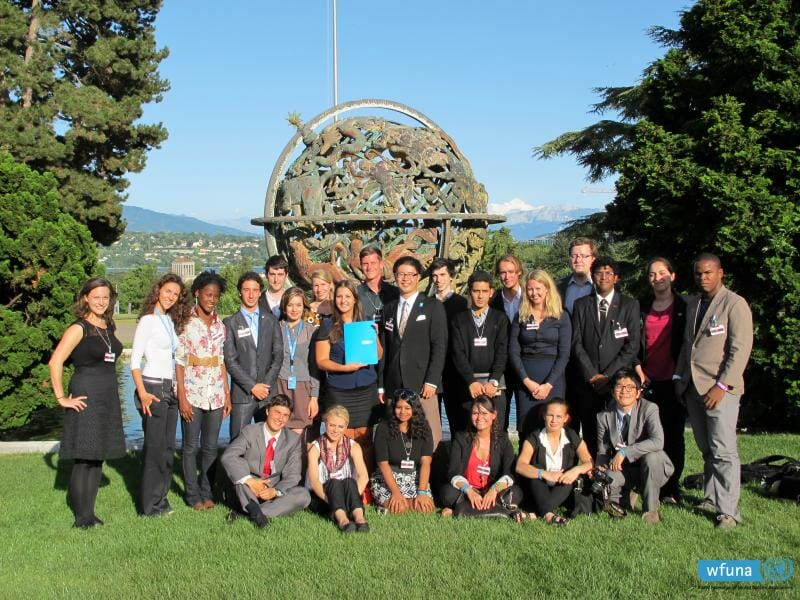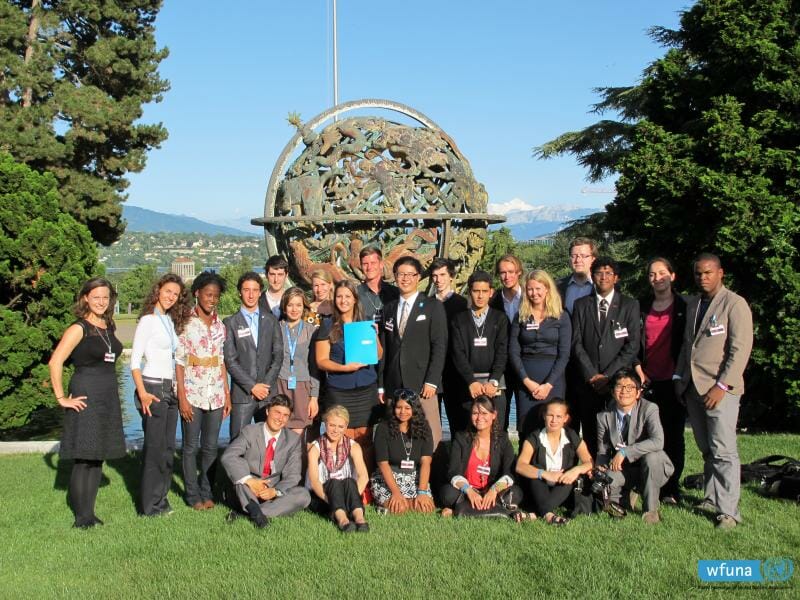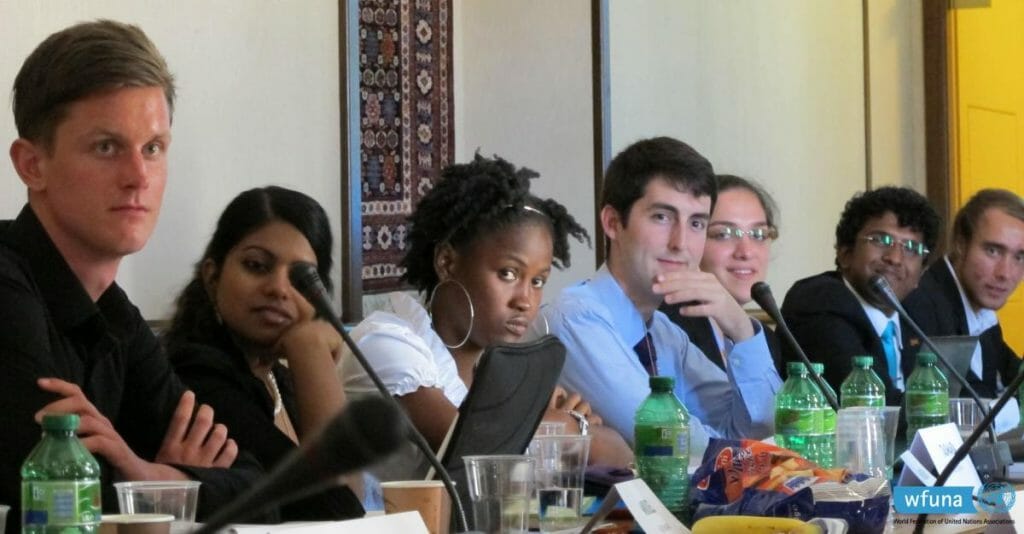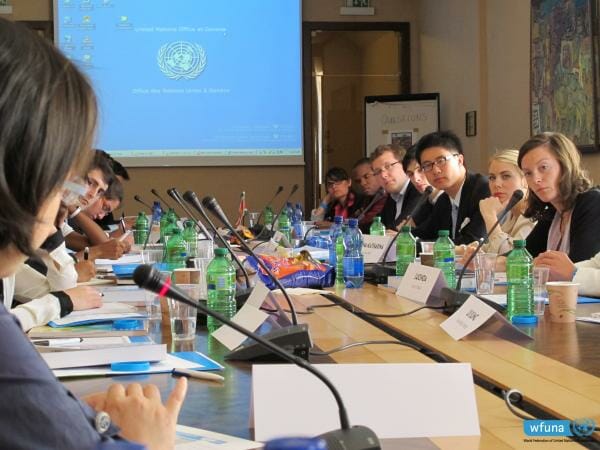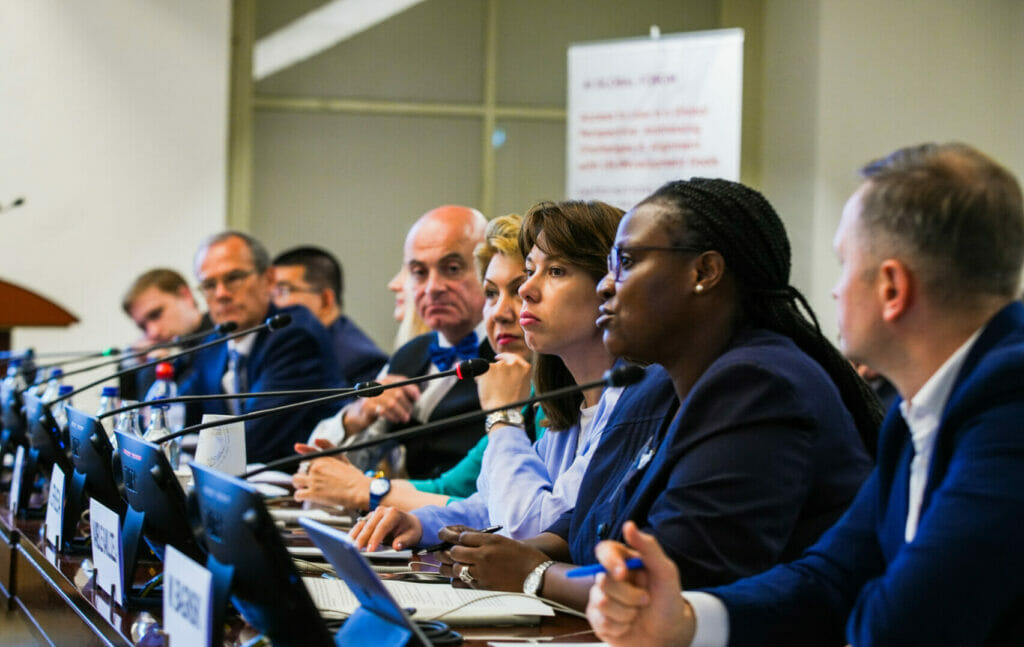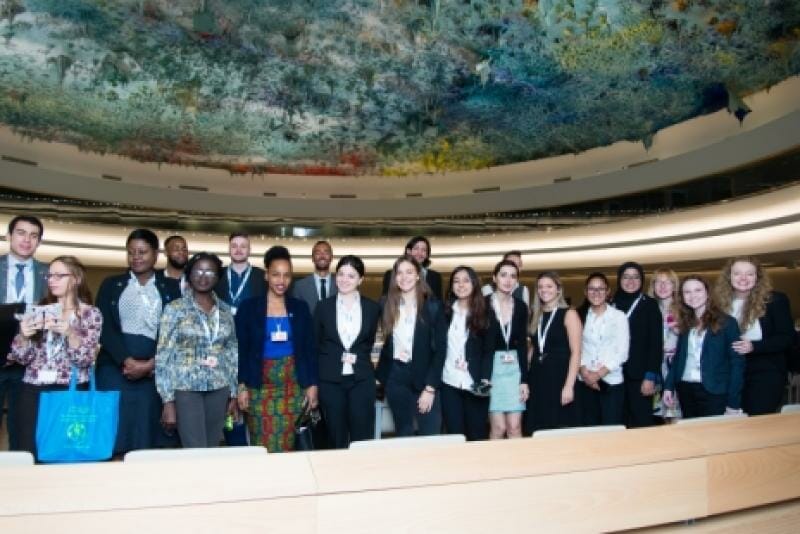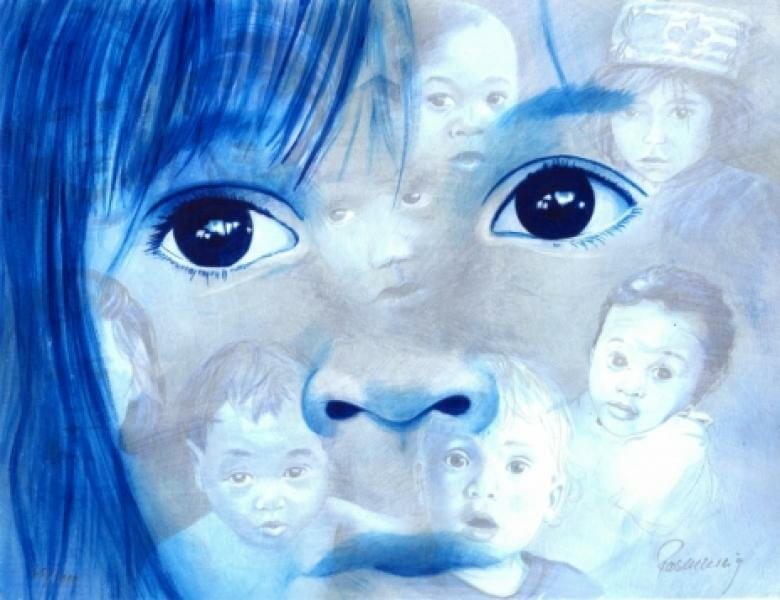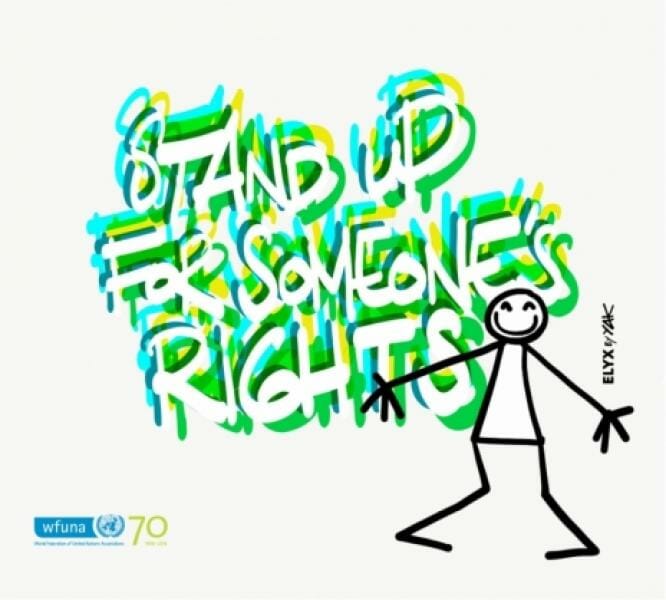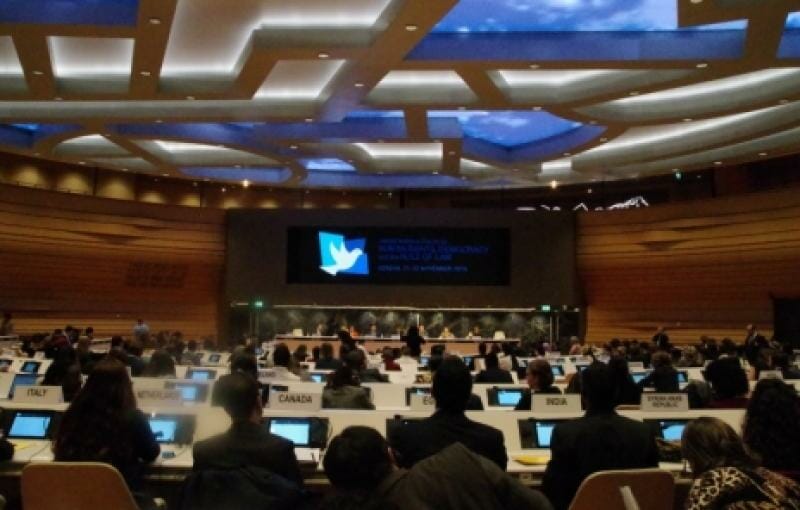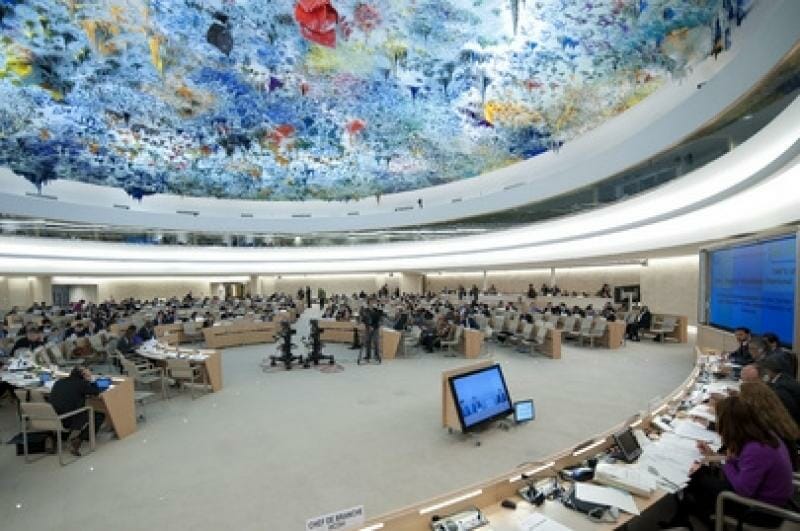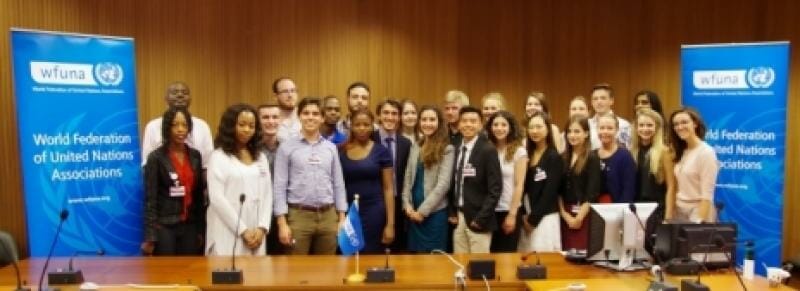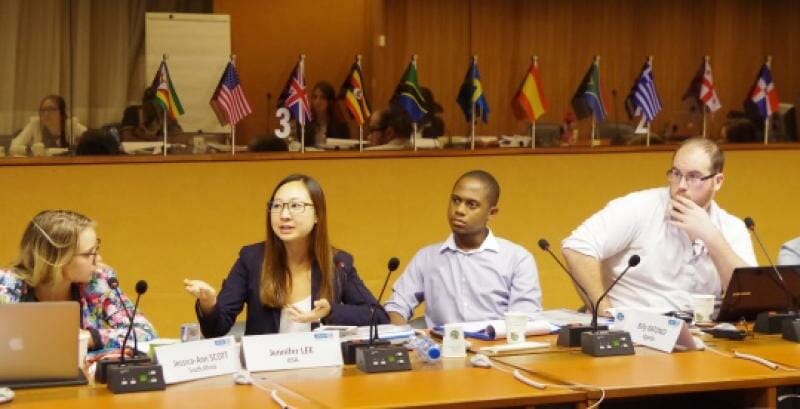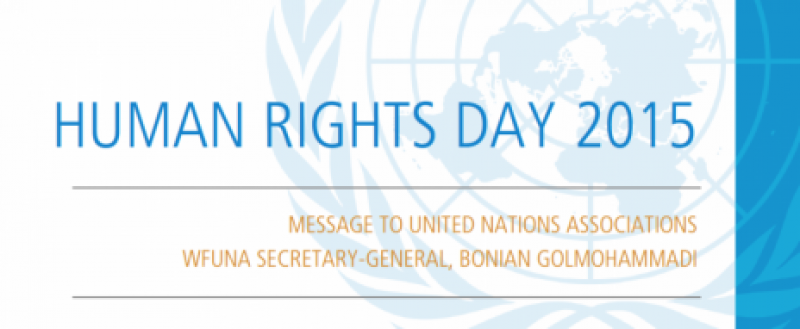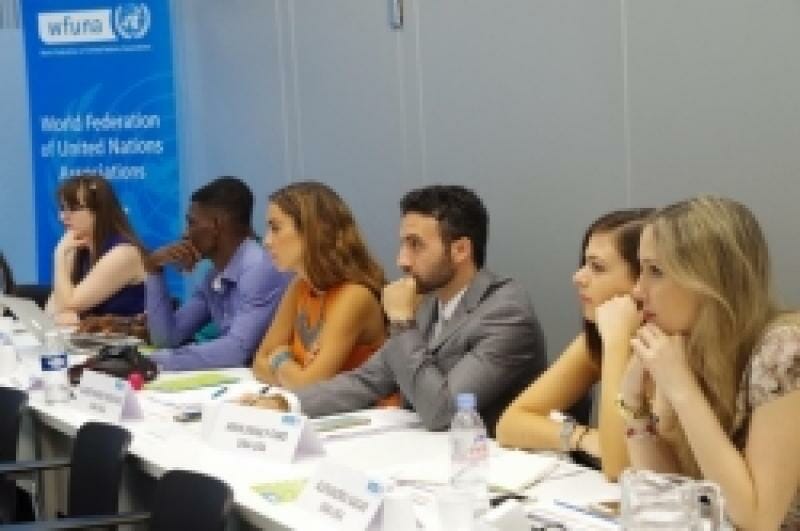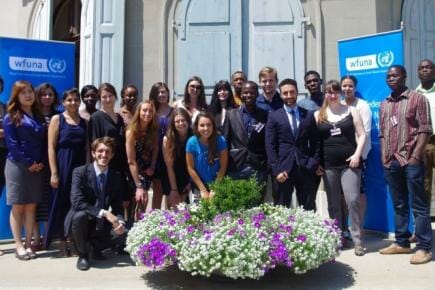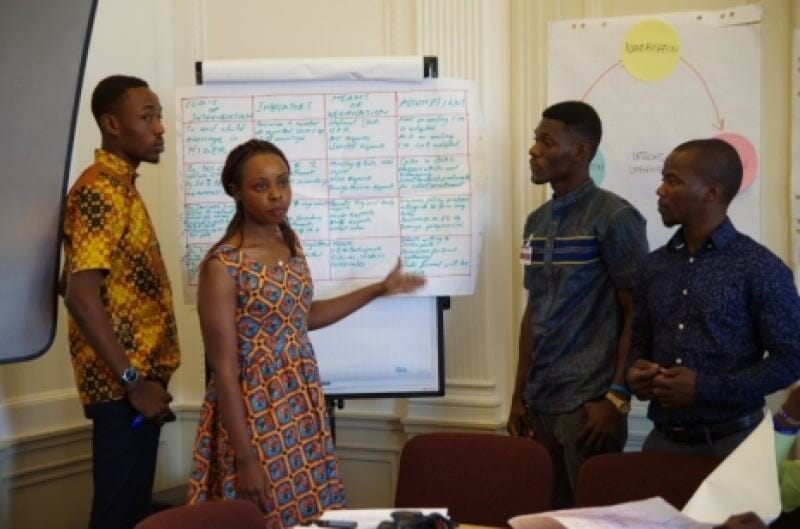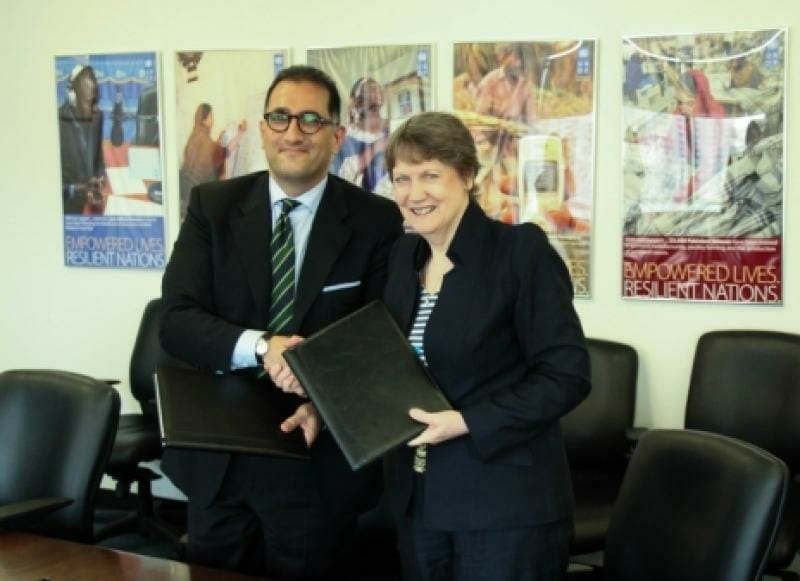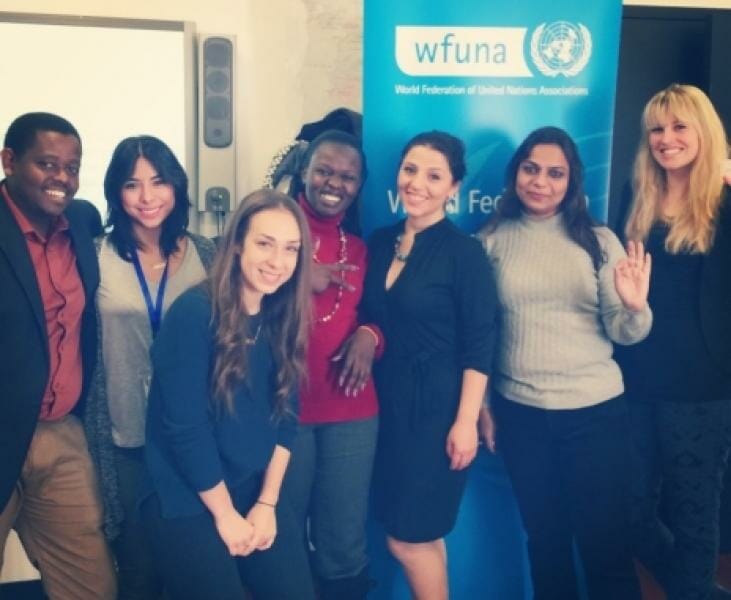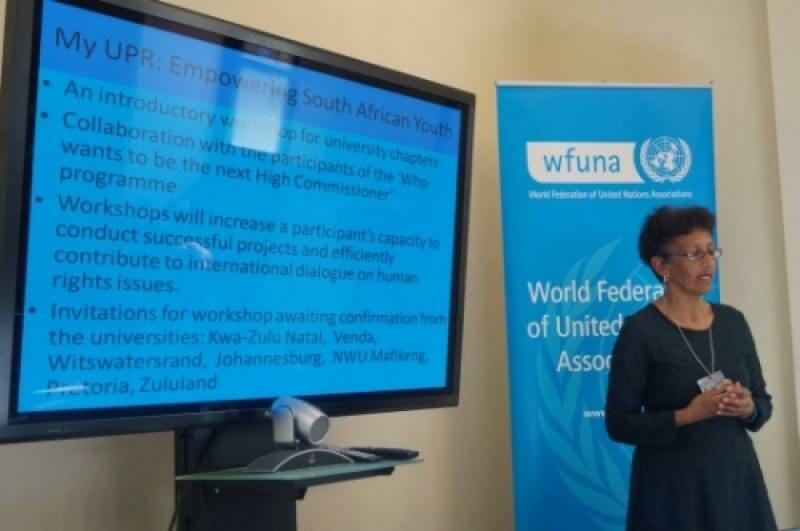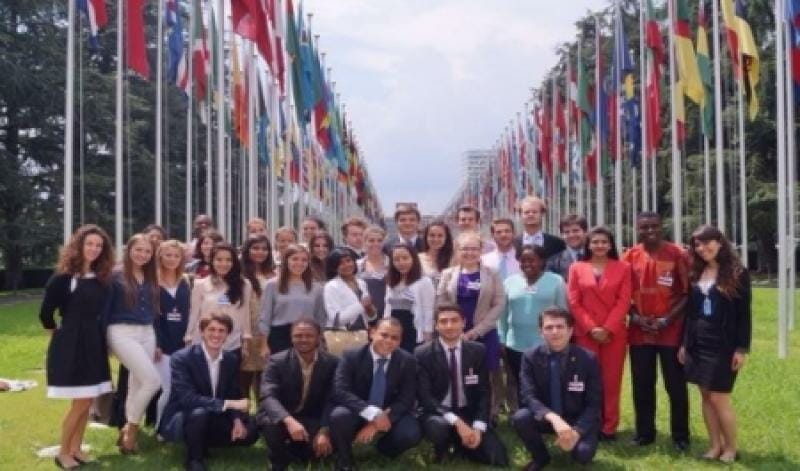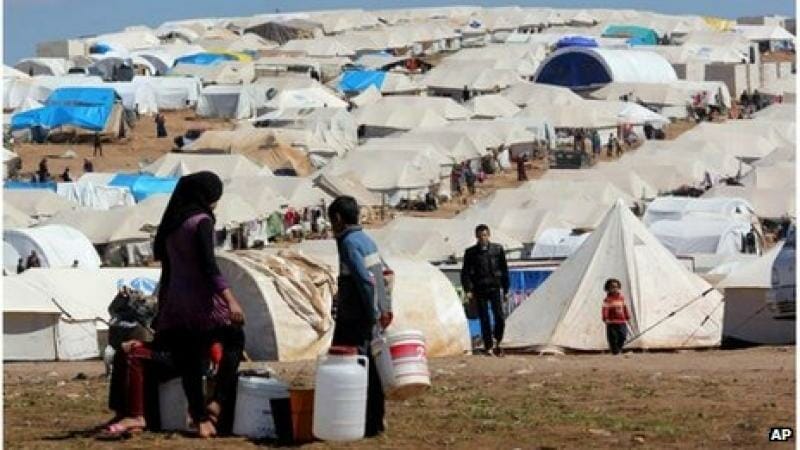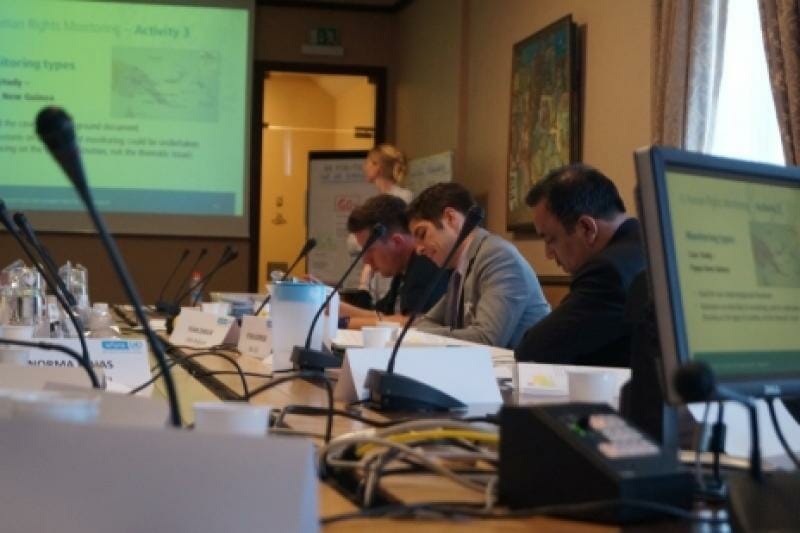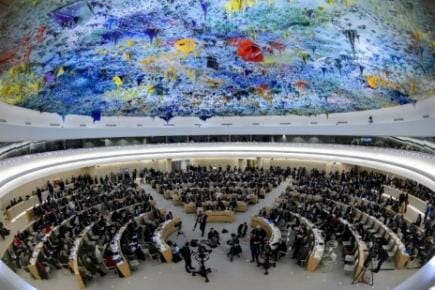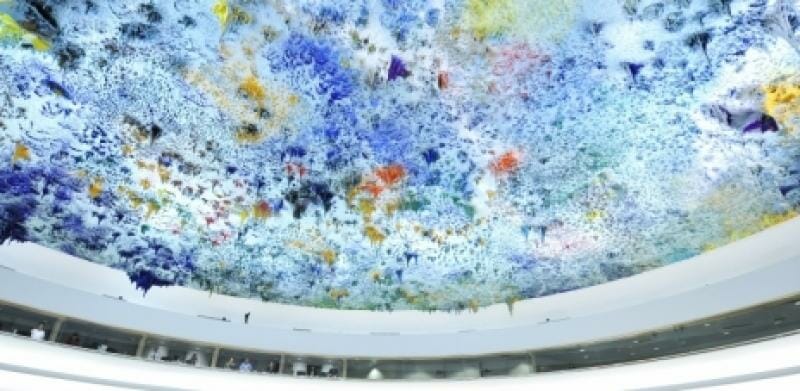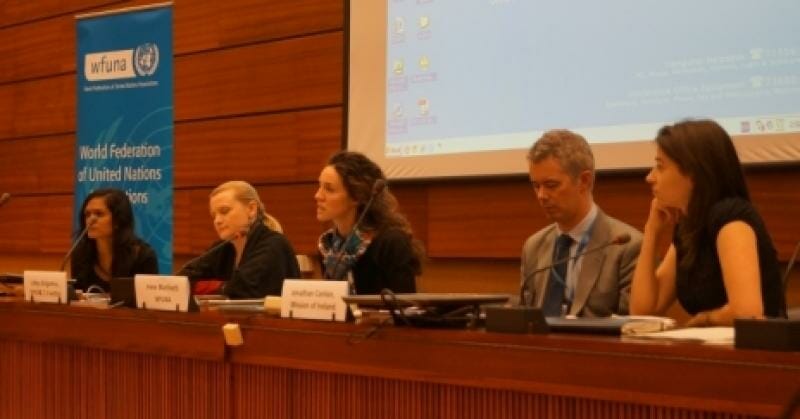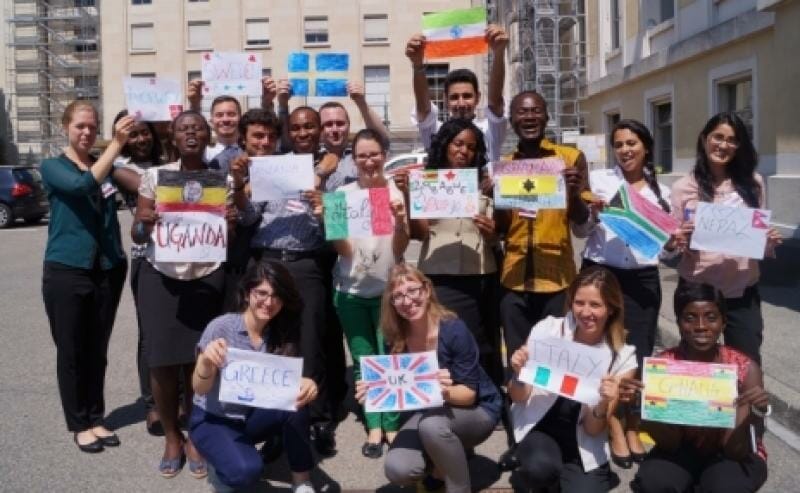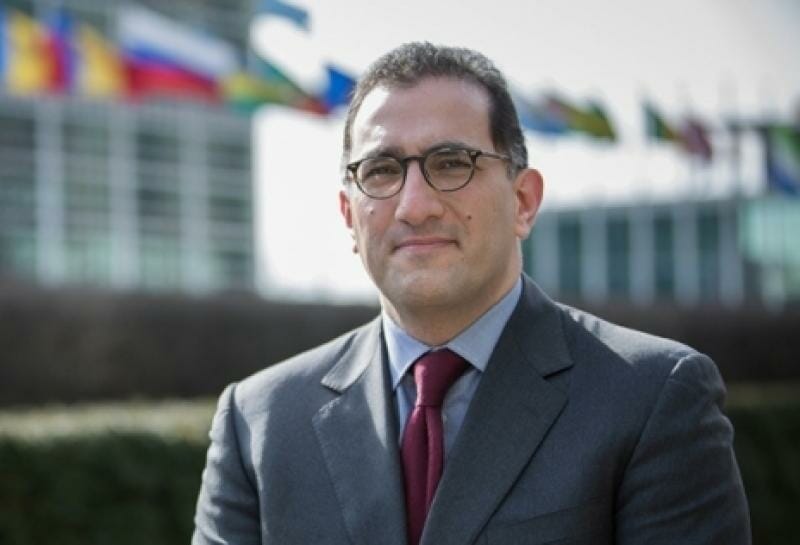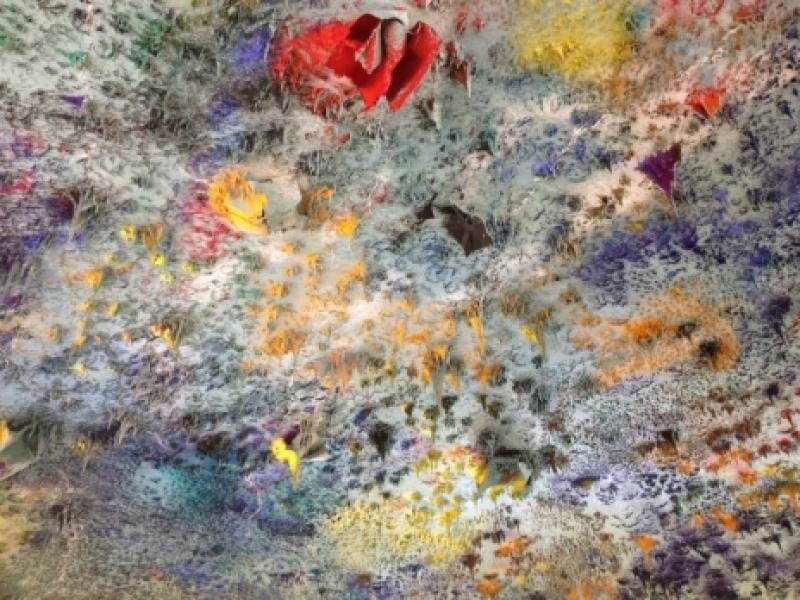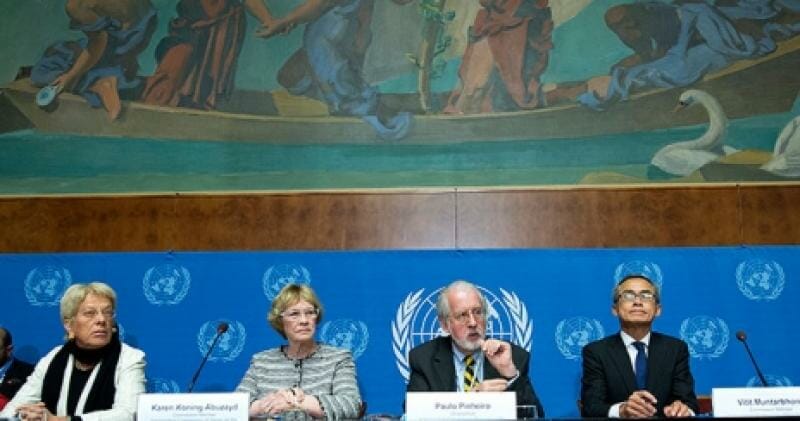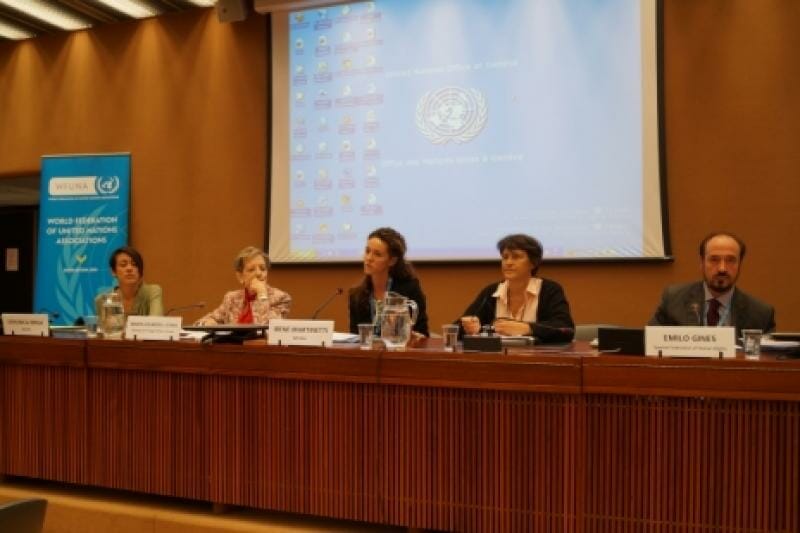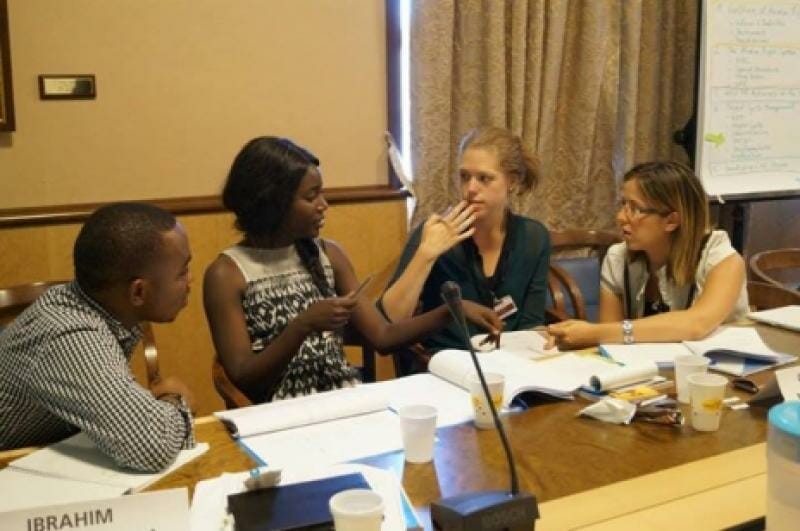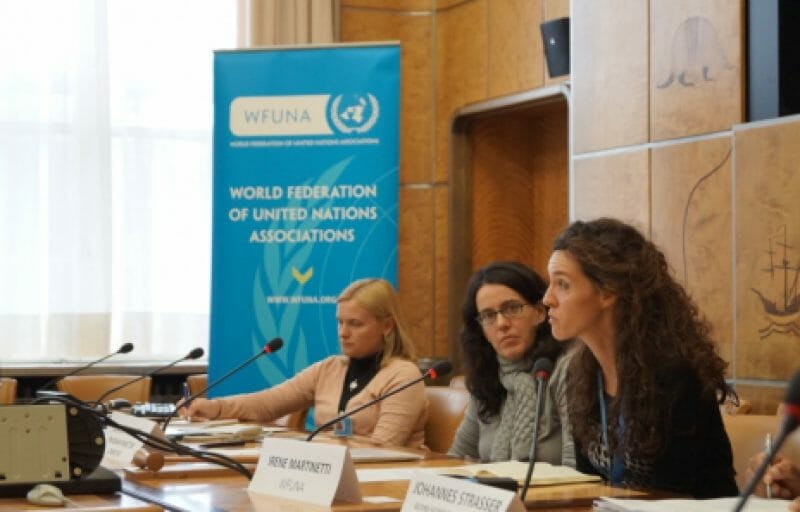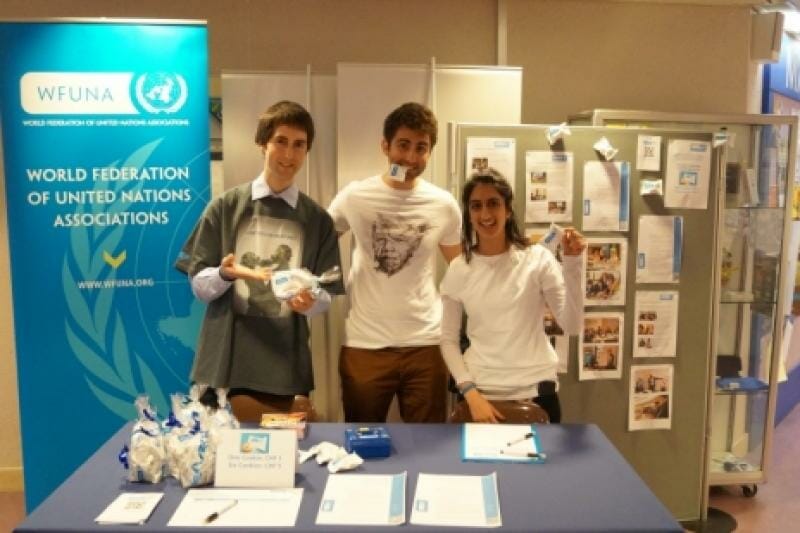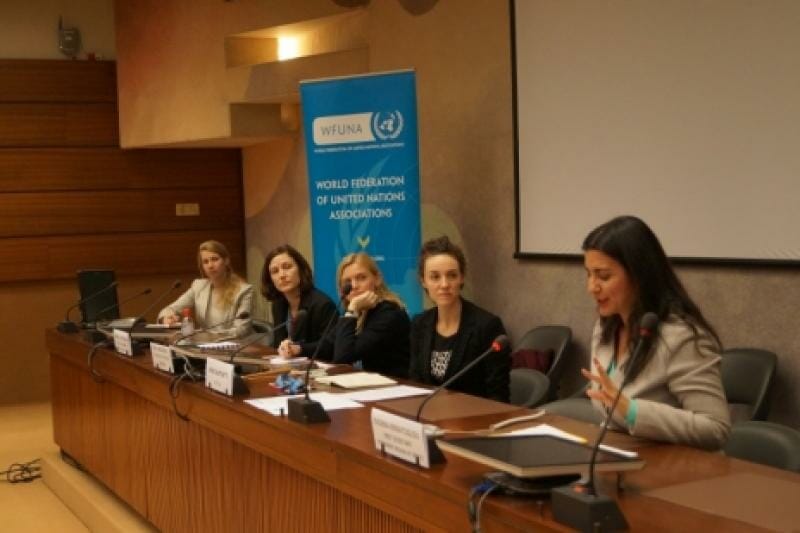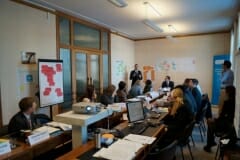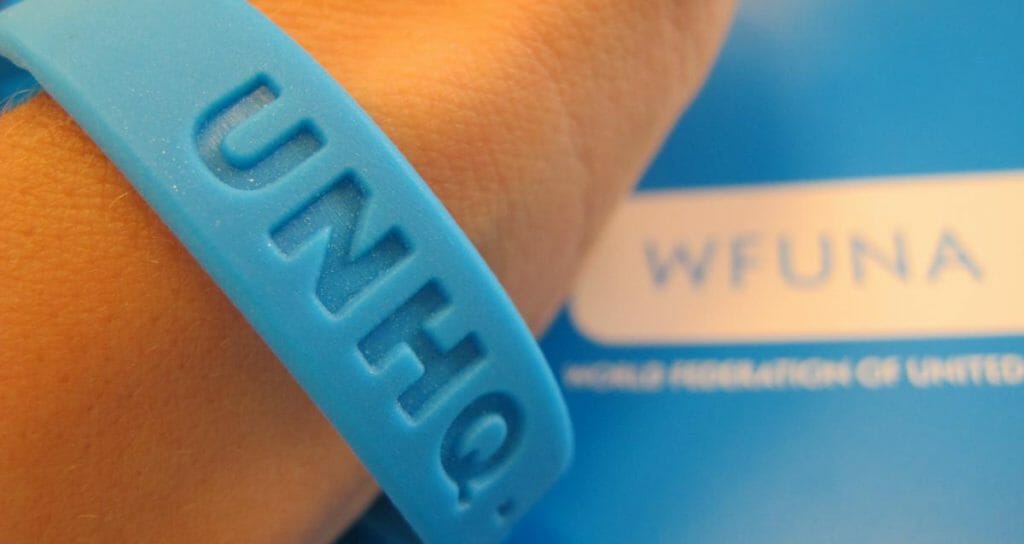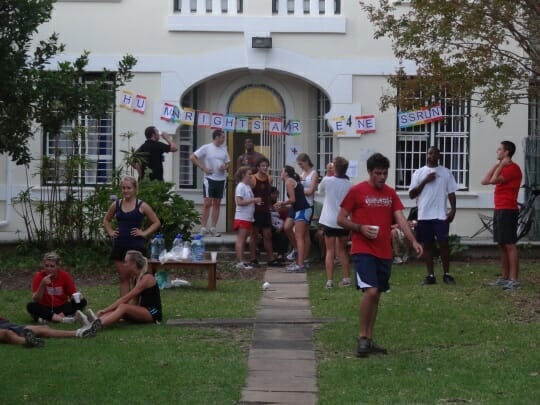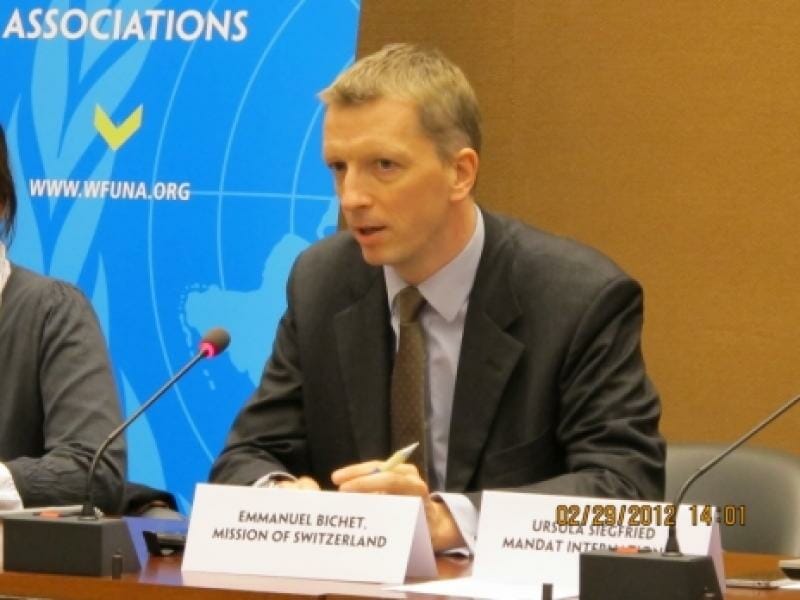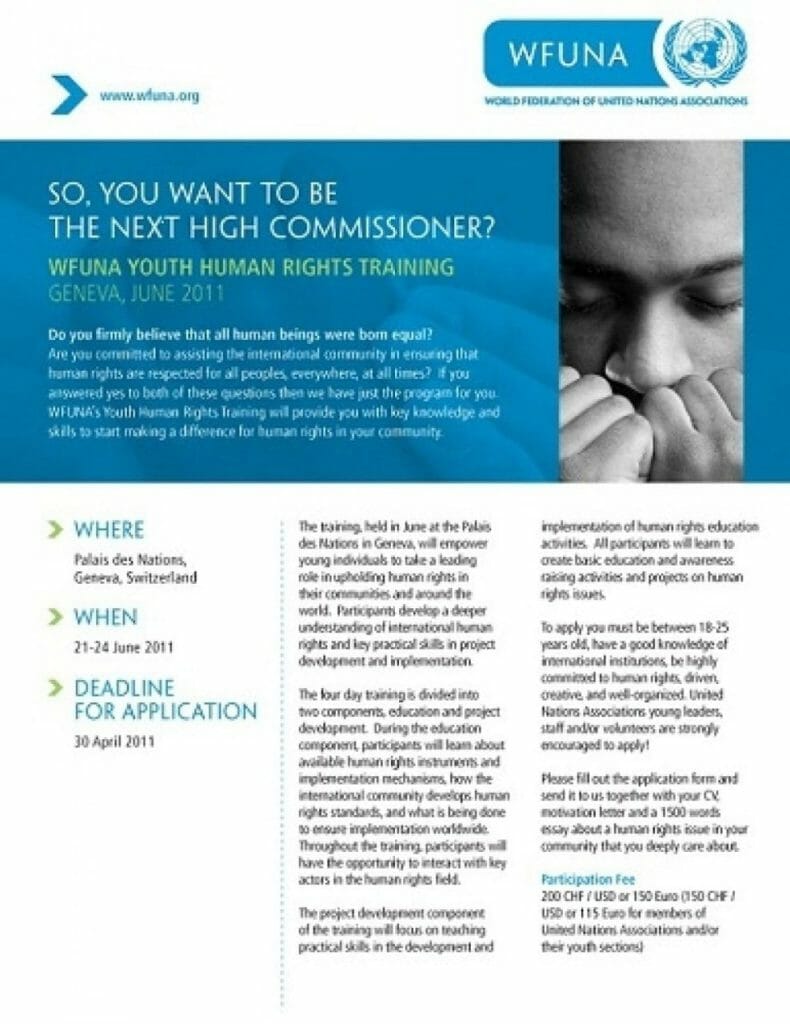WFUNA held its annual human rights training for young UNA members from 17 to 20 July 2012, at the Palais des Nations. 21 participants representing 15 different United Nations Associations around the world attended four days of sessions, which included presentations from various diplomats, UN and NGO staff as well as two days of training in project management. The main objective of the training was to empower UNA youth and equip them with the necessary skills to design and plan their own human rights project, to be implemented in coordination with their UNA and in line with national priorities.
Briefings & presentations
During the first two days of the training, participants learnt about the UN human rights system, its treaty bodies and mechanisms. Following the welcoming remarks of WFUNA’s Director of Programs, Irene Martinetti, Wiebke Harms, WFUNA’s Human Rights Education Program Officer, provided an overall introduction on the system to participants.
Staff from the Office of the High Commissioner for Human Rights provided useful and informative briefings on their specific areas of work: Fei Xing spoke about the Human Rights Council, Nathalie Stadelmann focused on the Special Procedures of the Council, Catherine de Preux gave a presentation on the treaty bodies, and Carmen Celina Arevalo on National Human Rights Institutions. Lidiya Grigoreva informed participants about civil society interaction with the UN human rights system, while Eeva Kristina Holopainen explained the structure and implementation of the Universal Periodic Review.
Participants heard first-hand from Timo Bauer-Savage, First Secretary of the German Mission, about international politics at the Human Rights Council and his experiences as a diplomat at the UN.
A number of speakers provided an interesting NGO perspective on human rights at the UN. Heather Collister from the International Service for Human Rights explained how NGOs can interact with the Human Rights Council as well as the potential obstacles they face when trying to engage with this body. Roland Chauville from UPR Info went into more detail on the Universal Periodic Review. Philippe Dam from Human Rights Watch and Alex Comte from the International Commission of Jurists offered their own experiences of human rights advocacy at the UN.
Ioana Cismas from the Geneva Academy of International Humanitarian Law and Human Rights spoke about the right to food and its role on the UN human rights agenda, as well as the work of the Special Rapporteur on this issue.
Budi Tjahjono of Franciscans International and Simone Droz, who formerly worked for Peace Brigades International, provided insights into the work of human rights defenders and the challenges they face. This followed the screening of the film The Dictator Hunter, about human rights defenders, which FIFDH (Geneva International Film Festival and Forum on Human Rights) kindly shared with WFUNA.
Each presentation was followed by a question and answer session, allowing participants to express their own ideas and to interact with the speakers.
Interactive role play
A UPR role play, developed and facilitated by WFUNA, strengthened participants’ understanding of the mechanism and encouraged them to consider the roles and responsibilities of states and NGOs in the UPR process.
Project management
The last two days of the training were devoted to project management, with Matteo Guidotti from the NGO School of Management introducing the principles of project management to participants, and then enabling them to put their knowledge into practice by designing and developing their own small-scale human rights project. They learnt how to create a logframe to be used as the basic structure for planning a project, and how to monitor and evaluate their projects effectively.
Participants are expected to implement a project in their own community within 6 months of the training, with the support of their UNA, which will be monitored and evaluated by WFUNA. We look forward to seeing their new skills being put into action!
Participants in the training were members of the following UNAs: UNA Australia, UNA Belgium (APNU), UNA Denmark, UNA Germany, UNA Italy, UNA Lebanon, UNA Malaysia, UNA Norway, UNA Republic of Korea, UNA Russia, UNA Spain, UNA Sri Lanka, UNA Suriname, UNA Sweden.
View photos from this event
Go to album


